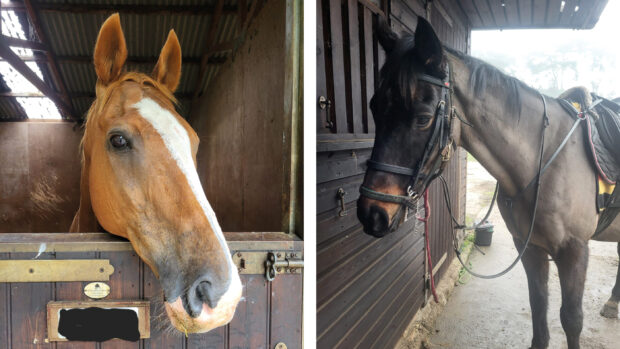Charcoal could help horses suffering from atypical myopathy, a new study has found.
Scientists have identified that the substance can help reduce the absorption of the toxin released by certain sycamore seeds, which can cause the condition.
There are hopes this could help horses in early stages of the illness and those who may have also eaten some affected seeds but are not yet showing signs of intoxication.
Atypical myopathy is an often-fatal condition in horses, usually seen in spring and autumn. It can be caused by eating sycamore seeds or seedlings that contain a high concentration of the toxin hypoglyin A.
Scientists at the University of Veterinary Medicine in Vienna set out to find a substance that could be given orally to horses to bind hypoglycin A and reduce the amount absorbed by horses.
They tested substances commonly used in equine veterinary medicine — activated charcoal composition, di-trioctahedral smectite, mineral oil and activated charcoal.
Jejunam (small intestine) tissue from six horses was used in the study and tested for the presence of the toxin after each of the substances was administered.
The scientists found activated charcoal composition and activated charcoal were “potent” binding substances for hypoglycin A.
“For the first time, this study identifies substances capable of reducing hypoglycin A intestinal absorption,” states the study.
“This might have major implications as a preventive measure in co-grazers of atypical myopathy-affected horses, but also in horses at an early stage of intoxication.”
Former British Equine Veterinary Association president Mark Bowen told H&H the research is “certainly interesting”.
“Vets have been using activated charcoal for all sorts of reasons, including atypical myopathy, for many years, but having some evidence is really useful,” said Mr Bowen.
“It suggests activated charcoal will be useful for treating horses that are starting to show signs of atypical myopathy.
“We need to remember this isn’t to be used lightly — we still need to do everything we can to avoid exposure [to sycamore seeds].”
The study was published in the March 2018 edition of the Equine Veterinary Journal.
H&H recommends owners contact their vet if they believe their horse could be showing signs of atypical myopathy.
You might also be interested in:

Atypical myopathy: what you need to know right now to keep your horses safe

Atypical myopathy: ‘Be vigilant this spring’ to protect your horse
Owners have been urged to take steps to combat this often fatal disease

‘Don’t let it be your horse’: atypical myopathy warning after racehorse dies
Owners are being urged to check their fields for sycamore seedlings now as the often-fatal condition can affect horses in
For all the latest news analysis, competition reports, interviews, features and much more, don’t miss Horse & Hound magazine, on sale every Thursday




